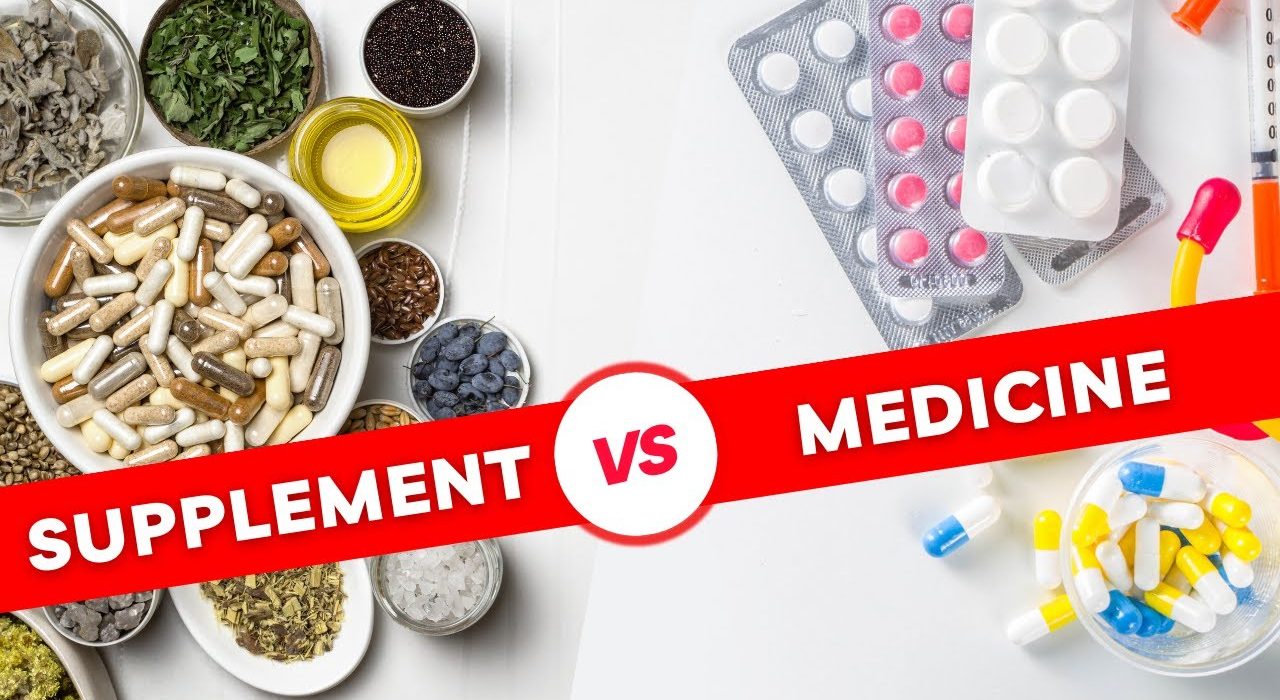Understanding the core differences between supplements and prescription medicine will help you make better decisions about when and how to use them.
1. Regulation and Approval
Prescription medicines are heavily regulated and must go through extensive clinical trials before being approved for public use. This process ensures they are safe, effective, and consistent in quality.
Supplements, on the other hand, are not subjected to the same level of scrutiny. In many countries, including the U.S., supplements do not require FDA approval before hitting the shelves. This means that the quality, dosage, and effectiveness of supplements can vary greatly between brands.
- Key Takeaway: Prescription medicine is more tightly regulated and tested, offering greater assurance of its effectiveness for specific conditions.
2. Intended Use
Supplements are generally used to support overall health or to fill nutritional gaps in your diet. They are not designed to cure or treat illnesses, though they may play a supporting role in maintaining wellness.
Prescription medicines, however, are formulated to treat, cure, or manage specific medical conditions. They are designed to address underlying health issues, such as high blood pressure, diabetes, or bacterial infections, and often require medical supervision.
- Key Takeaway: Prescription medications treat specific health conditions, while supplements are intended for general health support.
3. Effectiveness
Prescription medicines are proven to be effective through scientific research and clinical trials. When taken as directed, these medications are expected to deliver a specific therapeutic benefit, such as lowering cholesterol or managing pain.
The effectiveness of supplements, however, can vary. While some supplements, like Vitamin D for bone health or omega-3s for heart health, have been studied and found to offer benefits, others lack sufficient scientific evidence to support their use.
- Key Takeaway: Prescription medicines have well-documented efficacy, while the effectiveness of supplements may be less certain.
4. Potential Risks
Both supplements and prescription medications carry risks, but the nature of these risks can be different. Prescription medications can cause side effects, interact with other medications, or lead to dependency in some cases. That’s why it’s crucial to take them under the guidance of a healthcare provider.
Supplements may also cause side effects or interact with medications, especially when taken in large doses. Since supplements are not as strictly regulated, there’s also a risk of contamination or mislabeling, making it important to choose high-quality, reputable brands.
- Key Takeaway: Both supplements and prescription medications carry risks, but prescription medicine is typically monitored more closely by healthcare professionals.
When Should You Use Supplements?
Supplements can be a helpful addition to your daily routine when used correctly. Here are some scenarios where supplements may be appropriate:
- Nutritional Deficiencies: If you’re deficient in a specific nutrient, such as iron, Vitamin D, or calcium, a supplement can help you meet your body’s needs.
- General Health Support: Supplements like multivitamins or probiotics can support overall wellness, especially if you have dietary restrictions that limit your intake of certain nutrients.
- Specific Health Goals: Some supplements, such as omega-3 fatty acids for heart health or glucosamine for joint health, may offer targeted benefits.
Always consult a healthcare provider before adding a new supplement to your routine, especially if you’re taking prescription medicine.
When Should You Use Prescription Medicine?
Prescription medicine should be used when a healthcare provider identifies a specific health condition that requires medical treatment. Here are some situations where prescription medicine is essential:
- Chronic Conditions: Managing long-term health issues like high blood pressure, diabetes, or heart disease often requires prescription medication.
- Acute Illnesses: Infections, severe pain, or conditions like pneumonia or bronchitis typically need prescription drugs to resolve effectively.
- Mental Health: Conditions such as depression, anxiety, and bipolar disorder often require prescription medication as part of a broader treatment plan.
- Post-Surgery or Injury Recovery: Pain management and infection control after surgery or injury often depend on prescription medication.
Can You Use Supplements and Prescription Medicine Together?
It’s not uncommon for people to use both supplements and prescription medicine. However, this combination should always be approached with caution. Supplements can sometimes interact with prescription medications, altering their effectiveness or causing side effects.
For example:
- Vitamin K supplements can interfere with blood thinners.
- St. John’s Wort, an herbal supplement, can reduce the effectiveness of antidepressants and birth control pills.
If you are taking prescription medication, always consult your healthcare provider before adding any supplements to your routine. Your doctor or pharmacist can help you identify potential interactions and ensure that the combination is safe.
Conclusion: Finding the Right Balance for Your Health
When it comes to your health, both supplements and prescription medicine have a role to play. Prescription medications are essential for treating and managing specific health conditions, while supplements can help fill nutritional gaps and support overall wellness. However, it’s important to approach both with care.
Always use prescription medications exactly as directed by your healthcare provider, and be cautious when introducing new supplements into your routine. And most importantly, consult with your doctor or pharmacist to ensure you’re making the best choices for your health.
By understanding the differences between supplements and prescription medicine, you can take control of your health journey with confidence. Stay informed, stay safe, and prioritize your well-being with thoughtful and responsible healthcare decisions.
Need guidance on your supplements or prescription medicine? Visit Nilson Pharmacy for expert advice and quality products that support your health.


